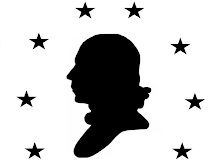Not long ago in a comment to Geoff, I praised the French limitation on the press: images may not be published without the consent of the person pictured.
In today's readings for Comparative Law with aged Professor Wolff, we read one of his law journal articles from 1941, in which he wrote the following on the subject of "Unfair Competition by Truthful Disparagement":
"Suppose A has committed some minor offenses in his youth but has later reformed and become a respectable and respected business man. Let us further suppose that B, a competitor, drags these all but forgotten misdeeds into the open to divert his rival's trade to himself. A may sue for libel but in a civil action for libel truth is a complete defense and it makes no difference whether defendant is a competitor or not. [That is, truth trumps malice.] A may also bring an action for unfair competition. The question has not arisen yet in this country whether, in such an action, truth would be a defense. But the French courts have held for ninety year [so, since around 1850] that in an action for unfair competition the truth of the defamatory statement is no defense. The reason for the rule is that matters of no real concern to the public should be kept out of the competitive struggle, that competition should proceed on the merits of the goods and services rather than on a comparison of the personalities of the rival traders."
I find no principled reason why "free speech" should involve the unfettered right to maliciously use words where physical contact is prohibited. Rather, our unbounded freedom to speak and propagate images seems prudentially based on the errors coming from abuse of the law and, more importantly, from an untested belief that such limitations outside politics will lead to hindered speech and thought in the political sphere. Or is the European tendancy to political extremes linked to such limitations?
Charles
PS: Professor Wolff, as is not surprising from a "comparatist," is a lifelong believer in the use of foreign law in deciding US cases. "Even the most provincial lawyer can hardly deny that in trying to find out what unfair competition is, the experience abroad should be of invaluable aid." He noted the SC case of Muller v Oregon, in which then advocate Brandeis entranced the Court. It stated: "The legislation and opinions referred to [from England, France, Switzerland, Austria, Holland, Italy and Germany] ... may not be, technically speaking, authorities, and in them is little or no discussion of the constitutional question presented to us for determination, yet they are significant of a widespread belief that woman's physical structure, and the functions she performs in consequence thereof, justify special legislation." As they say in France, plus ca change.
Saturday, April 16, 2005
Subscribe to:
Post Comments (Atom)

1 comment:
Yes, well, as they used to say, "The greater the truth, the greater the libel." The question would be whether a competitor counts as an interested party entitled to make a truthfully disparaging statement. In the case you describe, I suspect not.
Post a Comment